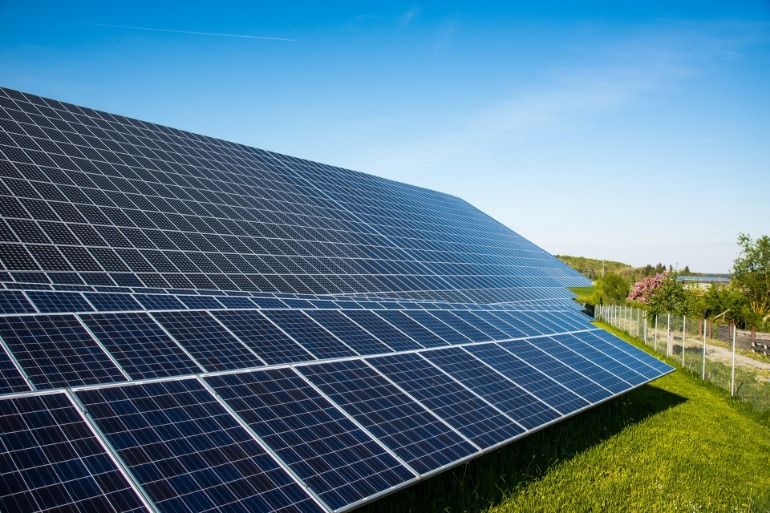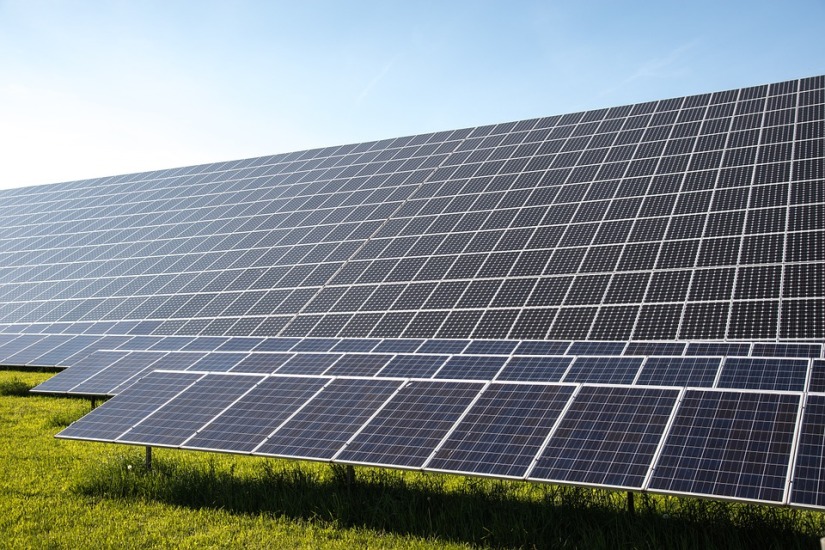
People worldwide are switching towards a sustainable lifestyle by adopting solar power, one of the most cost efficient and reliable energy. Over the past few years, the solar energy industry has witnessed some tremendous growth that is further garnered its popularity among the common masses. With acquiring solar power, people now have the cost-efficient option to generate electricity and store it for future use. Irrespective of unfavourable weather conditions, the solar panel can store the energy produced from the sun rays and utilize the excess energy. Using the perennial sunshine to generate electricity is the cleanest and economic approach to save money and contribute to reducing the carbon footprints.
The solar power system has proven to be beneficial for both residential and commercial purposes and there are several forms of panel system that suits well to their distinctive requirement. Whether it is for residential or commercial use, the primary aim of any solar powered utility is to reduce electricity bills by generating on-site electricity. However, there are certain differences and similarities between both of the solar panels with respect to the project size and the amount of electricity generated.
Residential Solar Panel System
With an increase in mounting electricity bills, households have now adopted solar power to reduced their expenses and switch to a sustainable lifestyle. Residential solar power system has substantially leveraged the green technology. Generally, solar panels are installed on the rooftop that efficiently converts sunlight into electricity. There are majorly three forms of a residential solar power system, i.e., grid inter-tied, grid inter-tied with battery backup, and off-grid. All the tree type of solar panels are closely related to the traditional utility solar infrastructure but are separated by their distinctive battery backup feature.
Commercial Solar Panel System
The ever-evolving demand for constant and sustainable electric power supply has encouraged business organizations to shift towards this revolutionary renewable energy for electricity generation. Commercial solar system based electric power has proven to be a reliable and cost-efficient alternative to substantially reduce the monthly overhead expenses for the business. Availing a dedicated solar power system can secure an enduring electricity generation for more than 20 years and develop an eco-friendly business environment. There are several ways through which organizations can utilize the perennial source of sunlight such as rooftop PC cells for electricity generation and radiant floor heating to keep the interiors warm during extreme weather conditions.

The key difference between residential and commercial solar panels is the use of energy. Residential building tends to use the majority of energy in the morning and after sunset, where the consumption is lower throughout the day. Whereas, commercial organization witness maximum energy consumption during work hours, i.e., daytime.
Aesthetic of the Solar Panels
Primarily, the solar panels are manufactured with functional purpose rather than endowing an aesthetic appeal to the building. However, with advancements in solar technology, people have started preferring solar panels that can impart an exceptional look to their infrastructure. The residential solar power system is more innovative and attractive than any commercial solar panels. However, some businesses prefer the sleek frameless solar panel without the metal framework to endow a professional and corporate look to their building.
Modular Design of Solar Photovoltaic System
The PV panels used for commercial solar power system are quite similar in size of residential panels, but the energy produced from each cell of both the panel differs. An average residential solar power system requires two dozen panels to generate and store electricity for a regular household. Whereas, commercial solar systems demand hundreds and thousands of panels to create a significant difference in electricity expenses. Inverters are used in both the panel system to convert the direct energy output of the solar panels into electric power supply adequate for the grid utility. The major difference between the modular design of residential and commercial solar panels is that the latter tends to generate more electricity and achieve a lower installed cost per kilowatt.
Electricity Savings
It is quite evident that both commercial and residential solar power system substantially reduces the expenses by generating on-site electricity. In the case of higher utility rates, the payback period can be fast. Consumers who adopt solar panel system under PPA (Solar power purchase agreement) can avail a lower kilowatt per hour rates. Residential solar power systems can store the excess electricity generate and utilize it for the night-time consumption, hence households get the maximum value from the energy generated. Commercial panels system, on the other hand, are subject to capacity charges and the energy generated depends upon the capacity of the utility grid.
Solar panel system is certainly the campaigner of future energy that can significantly augment the development of an eco-friendly environment. With electricity expenses and fuel prices mounting up on a daily basis, solar energy has paved a cleaner and reliable way for generating electricity for both residential and commercial purpose.